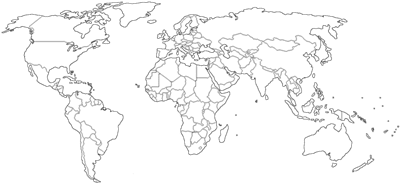Get access to latest Polynesia law and legal tenders and bids. Find government contracts and opportunities public and private procurement for Polynesia law and legal tenders, government law and legal contracts Polynesia, Polynesia legal aid tenders, drafting tenders, Polynesia arbitration tenders, legal advisory tenders, Polynesia legal affairs tenders, law legal bids, international law tenders, advocates tenders. Find Polynesia law legal tenders, bids, procurement, RFPs, RFQs, ICBs.
Law is a system of rules created and enforced through social or governmental institutions to regulate behavior, with its precise definition a matter of longstanding debate. The creation of laws themselves may be influenced by a constitution, written or tacit, and the rights encoded therein. The law shapes politics, economics, history and society in various ways and serves as a mediator of relations between people. Legal systems vary between countries, with their differences analysed in comparative law. In civil law jurisdictions, a legislature or other central body codifies and consolidates the law. Legality, in respect of an act, agreement, or contract is the state of being consistent with the law or of being lawful or unlawful in a given jurisdiction, and the construct of power.
With the exception of New Zealand, the majority of independent Polynesian islands derive much of their income from foreign aid and remittances from those who live in other countries. Some encourage their young people to go where they can earn good money to remit to their stay-at-home relatives. Many Polynesian locations, such as Easter Island, supplement this with tourism income. Some have more unusual sources of income, such as Tuvalu which marketed its '. tv' internet top-level domain name or the Cooks that relied on postage stamp sales. Aside from New Zealand, another focus area of economic dependence regarding tourism is Hawaii. Hawaii is one of the most visited areas within the Polynesian Triangle, entertaining more than ten million visitors annually, excluding 2020. The economy of Hawaii, like that of New Zealand, is steadily dependent on annual tourists and financial counseling or aid from other countries or states. "The rate of tourist growth has made the economy overly dependent on this one sector, leaving Hawaii extremely vulnerable to external economic forces. "By keeping this in mind, island states and nations similar to Hawaii are paying closer attention to other avenues that can positively affect their economy by practicing more independence and less emphasis on tourist entertainment. The six countries in Polynesia are New Zealand, Solomon Islands, Tonga, Tuvalu, Vanuatu, and Samoa.
This is a global tender information platform that provides a database of tenders from various industries and countries around the world. You can search for tenders by country, industry, and keyword, and view the details of each tender, including the deadline for submission, the requirements, and the contact information.
Government e-Procurement System: Many governments around the world have established e-procurement systems to manage their procurement processes.
Note that the tender processes are usually subject to various rules and regulations. Therefore, it is essential to carefully review the tender documents and follow the instructions to ensure that your bid is eligible for consideration.
Bidding on tenders requires careful preparation and attention to detail. Here are some general steps to follow when bidding on tenders:
Identify the tender: Search for tenders that match your business capabilities and interests. You can use online platforms like TenderNet, TenderSearch, or government e-procurement systems to find tenders.
Read the tender documents: Read the tender documents carefully to understand the requirements, deadlines, and evaluation criteria. Make sure that you are eligible to bid and that you can comply with all the requirements.
Prepare the bid: Prepare your bid by following the instructions in the tender documents. Provide all the information requested, including your company profile, experience, and qualifications. Explain how you will meet the requirements of the tender and provide any supporting documents.
Submit the bid: Submit the bid before the deadline. Make sure that you have included all the required information and that you have complied with all the instructions. Submit the bid in the required format, such as online or physical submission.
Follow up: After submitting the bid, follow up with the procurement agency to confirm that they have received your bid. You may also ask for feedback on your bid and the outcome of the tender.
Note that the tender process may vary depending on the procurement agency and the type of tender. Therefore, it is essential to carefully review the tender documents and follow the instructions provided.
Tags: Polynesia Law and legal Tenders, Polynesia Law and legal Bids, Law and legal Global Tenders, Polynesia Law and legal International Tenders, RFPs, RFQs, EOI, ICBs, Procurement news, Project Information, Contract awards.
